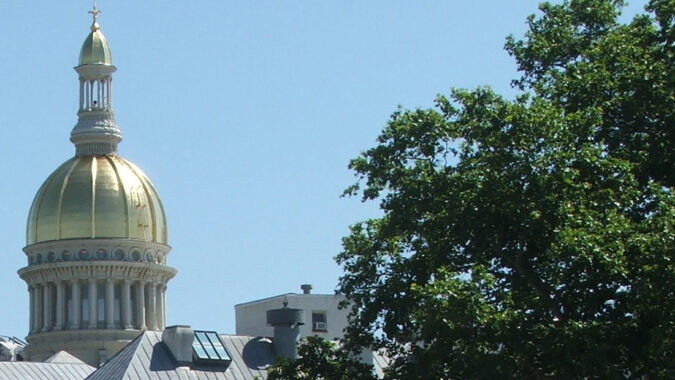 The Assembly Appropriations Committee approved legislation that would allow taxpayers a way to work around the new $10,000 federal cap on the State and Local Tax (SALT) deduction. Legislation to subsidize the state’s nuclear power plants was also approved.
The Assembly Appropriations Committee approved legislation that would allow taxpayers a way to work around the new $10,000 federal cap on the State and Local Tax (SALT) deduction. Legislation to subsidize the state’s nuclear power plants was also approved.
Property Tax Deduction, A-3499 (McKeon, D-27; Jasey, D-27)/S-1893 (Sarlo, D-36; Sweeney, D-3)
Released by Assembly Appropriations Committee, April 5.
This legislation could turn property taxes into charitable contributions so New Jerseyans can deduct them from their taxable federal income.
Under the federal tax reform law passed at the end of 2017, taxpayers are allowed to deduct only $10,000 in state and local taxes from their federal taxable income. This will hurt many New Jerseyans who pay more than that in property taxes alone. Under this legislation, local governments could establish one or more charitable funds, each for a specific public purpose, and permit property tax credits in association with certain donations.
Charitable contributions remain fully deductible under federal law. If taxpayers can lower their property taxes by turning some of them into donations to their local government, they would be able to reduce their taxable income even with the new tax cap.
Nuclear Power Subsidies, A-3724 (McKeon, D-27; Burzichelli, D-3)/S-2313 (Sweeney, D-3; Smith, D-17)
Released by Assembly Appropriations Committee and Senate Budget & Appropriations Committee, April 5
NJBIA position: seeking amendments
The bill would create a process for zero emission credits that would subsidize nuclear power plants in New Jersey, paid for by a tariff of $.004 per kilowatt hour on electric bills. NJBIA has long supported nuclear power and understands that it is an important part of the state’s fuel diversity, but this must be balanced with the need for business to remain competitive.
As it is, New Jersey has the highest electric rates in the PJM power grid and the 10th highest in the country. Currently, 24 percent of the electric bill is from government-imposed taxes and fees. This particularly impacts the business community because commercial and industrial ratepayers consume 64 percent of the electricity generated.
In its current form, the bill does not provide an analysis of the ultimate economic impact to the ratepayer and it does not take into account PJM actions or the early retirement of the Oyster Creek nuclear plant. The bill needs amendments that would ensure the proper balance is struck between meeting the needs of the industry while maintaining regional competitiveness.

